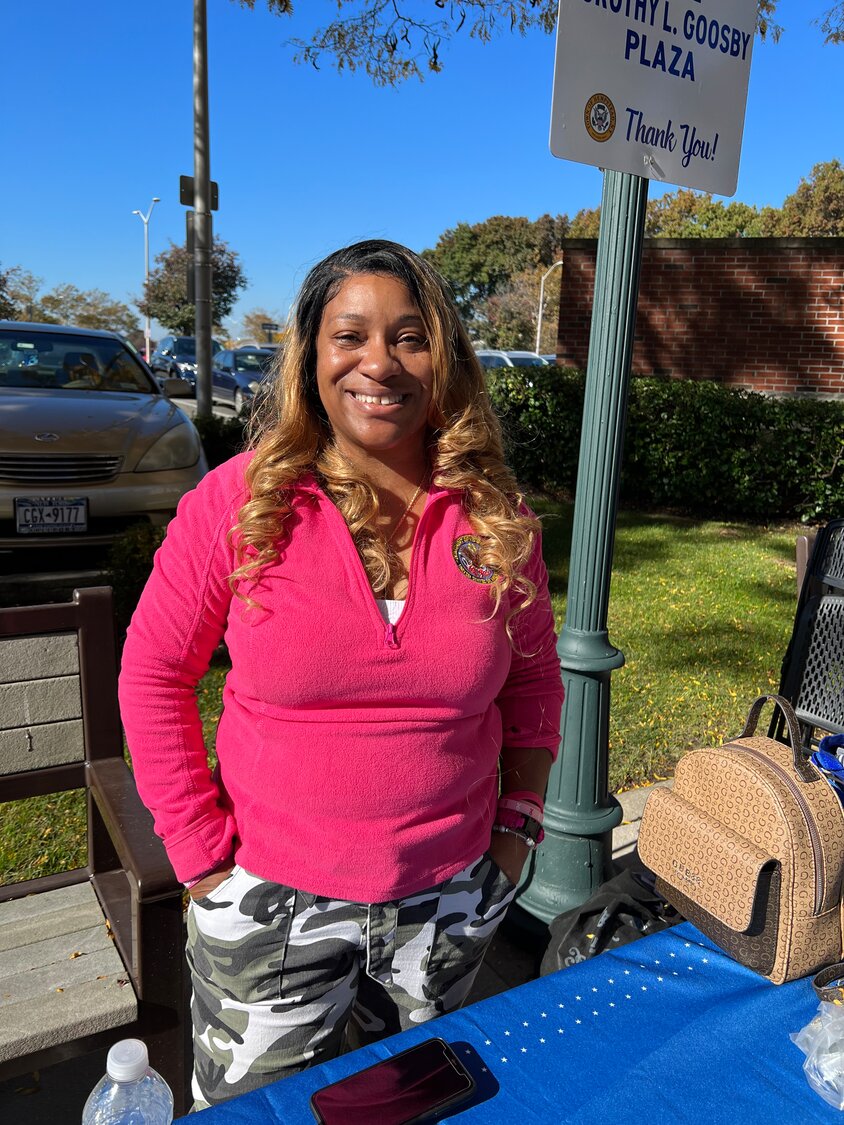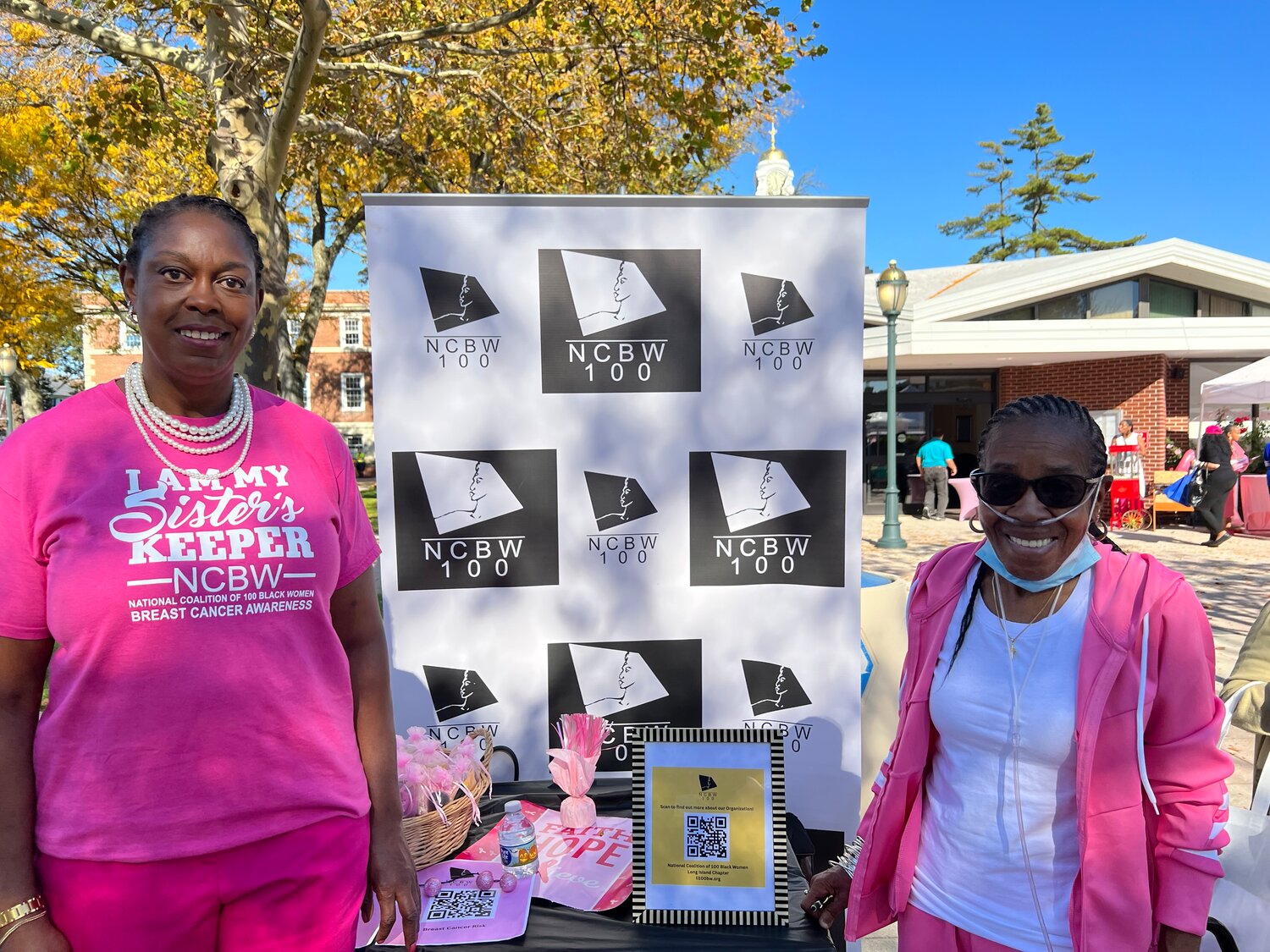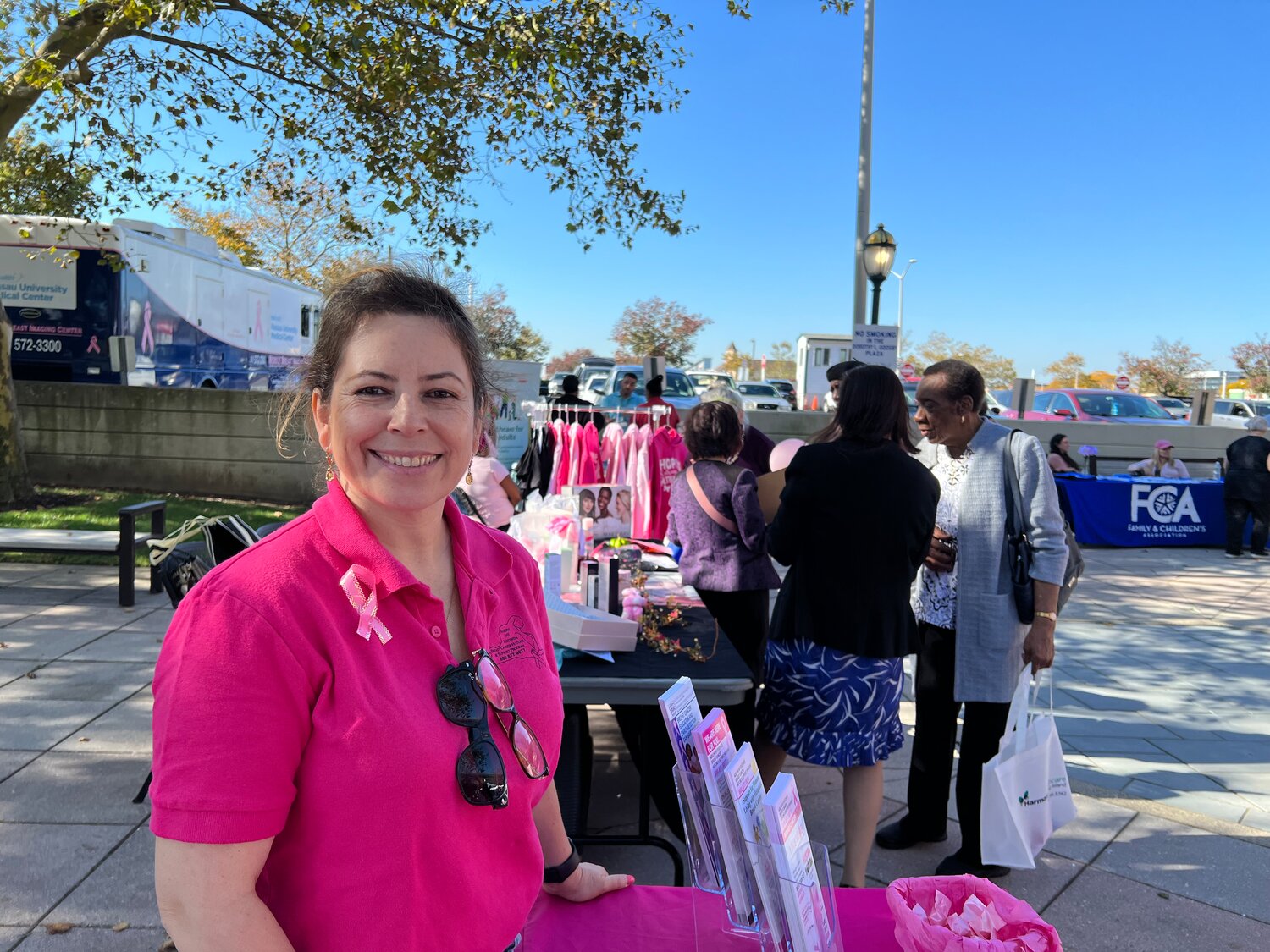Deputy Supervisor Goosby hosts breast cancer and health event
“I think about the ones who have passed on because they did not bother to go,” said Deputy Town Supervisor Dorothy L. Goosby.
She was talking about going to physicians for regular cancer screenings, or for checkups when signs of cancer appear, such as a change in a wart or mole, or lumps under the skin. The occasion was the breast cancer awareness event that she hosted at Hempstead Town Hall on Oct. 28.
As Goosby spoke, she was standing in the Town Hall lobby with Geri Barish, co-founder of 1 in 9: The Long Island Breast Cancer Action Coalition. Barish is also the executive director of Hewlett House on East Rockaway Road in Hewlett, a resource center for people fighting cancer and their families.
Barish had brought a broad hand-stitched banner that read, “Women With Breast Cancer Are Dying for Research,” to donate to the Town of Hempstead.
“This banner is the very first banner that we made in the nation in 1990,” said Barish. “We were a group of four or five women who couldn't answer a lot of questions. We had just started working on cancer and breast cancer.”
Linda Toscano, a young mother fighting breast cancer, sewed the banner. With Barish and two other activists, Pat Kaplan and Fran Krichek, she attended the unveiling of the AIDS Memorial Quilt at the Capitol Building in Washington, D.C.
The four women stood with their banner unfurled during the AIDS event.
“People started coming and asking us questions: How do you get breast cancer? Why are women dying?” Barish said. “And we realized we had a lot of work to do.”
Since then, the banner has traveled to countless locations with Barish and other advocates. They have scored victories such as passage in New York State of the 1997 “Mastectomy Bill,” which mandates a 48-hour hospital stay for women undergoing a mastectomy. They have also funded research such as that of Dr. Michael Wigler, who discovered the breast cancer gene, P-TEN.
“Our young black women and our young Hispanic women and our young men are dying from cancer at a very high rate,” said Goosby. “It’s up to us” — to continue educating the community, people of color in particular, and demanding action from legislators.
In the Town Hall Plaza, about 20 health organizations had set up tables with information concerning cancer awareness and associated health matters.
“I try to educate people on all the resources that are out there,” said Sharran Chambers-Murphy, a veterans outreach program specialist with the Department of Veterans Affairs in Hicksville. “I explain what we do, and tell people when eligibility changes, so more people are able to come and receive our services.”
Chambers-Murphy was discussing her organization’s donation of cancer pillows, which are specifically designed for women recovering from a mastectomy, with local community advocate Joyce Dewar.
Cancer survivors Tanya Crawford and Mae Watts, who are with the National Coalition of 100 Black Women, Inc., Long Island Chapter, handed out bags with ginger tea, ginger lozenges, and information.
“There are things to understand about breast density, breast cancer facts, breast cancer myths,” said Crawford. She said ginger helped combat her nausea during chemotherapy.
“One in eight women will get breast cancer, but Long Island is a hot spot,” said Sandra Martinez, a bilingual Spanish-English outreach coordinator with Adelphi University School of Social Work, Breast Cancer Hotline & Support Program. “We help women who don’t have health insurance get free mammograms.”
‘We stand in the gap for those medical professionals who are administering hospice and palliative care,” said 20-year cancer survivor Semiko Crider, a doula (certified health support professional). With her niece Letisha Crider, a birth doula, Semiko offers resources through her organization, Okimes 13: Holistic Wellness Care.
A panel of medical professionals from Nassau Community College, Nassau County, Mount Sinai, and NYU Langone presented information at a program inside Town Hall, while the health advocates in the plaza distributed pamphlets and answered questions, all of it aimed at promoting healing and preventing needless suffering.

 50.0°,
Overcast
50.0°,
Overcast 









